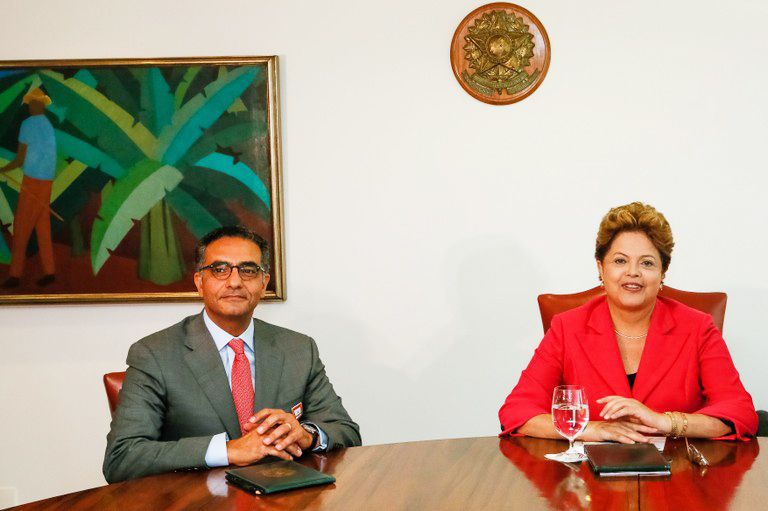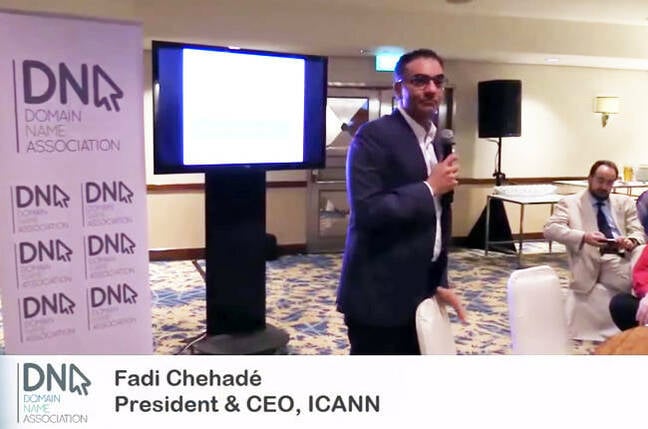Troubling Revelations Regarding the IANA Transition – Major Alarming Gaffes by ICANN CEO
The one million dollar question however is: “If the ICANN CEO thinks that the CWG does not understand how the IANA functions work, and no body else understands it but ICANN, then why give such an important responsibility of aspects of the IANA Transition proposal to a group of people that presumably do not understand how the system works?”
The IANA Transition has been experiencing a troubled journey laden with challenges as regarding the best model to present as a workable proposal to the US government in order to effect the transition. The major oversight transfer into the hands of a suitable body that is Consistent with the clear policy expressed in bipartisan resolutions of the U.S. Senate and House of Representatives (S.Con.Res.50 and H.Con.Res.127), which affirmed the United States support for the multistakeholder model of Internet governance, clearly specifies that the NTIA will not accept a proposal that replaces the NTIA role with a government-led or an inter-governmental organization solution.
NETmundial lifecycle – not ICANN core activity?

First in the stage towards such a journey was a move into the now infamous and seemingly silent NeTMundial initiative that was almost seen as a competition to the annual IGF. It is the product of numerous efforts led by the ICANN CEO to bring together different voices from within the global netizenry. The objective of the NETmundial Initiative is to provide an open, generative, and collaborative space, inviting permission-less innovation to build and deliver distributed Internet governance enablers and solutions.
The event was supposed to be a onetime event having been convened at Sao Paulo, Brazil in May 20th, 2014 as ‘the Global Multistakeholder Meeting on the Future of Internet Governance’. However organizers attempted to build it into an initiative with which it could have membership. At one time the Initiative was struggling to create this membership after the permanent founding members apparently rejected the seats with ISOC saying
“the Internet Society cannot agree to participate in or endorse the Coordination Council for the NETmundial Initiative” and CGI.Br stating “Finally, let us reaffirm that CGI.br would never agree with top-down, closed decision-making processes that could possibly undermine its legitimacy as a true bottom-up, multistakeholder body”
The initiative activities have somewhat slowed down and one would wonder if it was predestined to reach a dead end, and can go no further. Perhaps it is something to expect. Fadi Chehade is remembered to have said that “ICANN involvement in the World Economic Forum and in NetMundial are not in any way related to our core activities”; this is despite ICANN allocating $200,000 towards the running budget of the NETMundial Initiative and including the WEF as its partner.
The above statement by Chehade is not just one instance. There are several other occasions that he has been known to make embarrassing statements that have caused anger, confusion and criticism from different stakeholders within the Internet governance community.
Let us recall some instances that the ICANN CEO has committed major alarming gaffes:
Community Working Group (CWG) Clueless?
 Recently a Video footage of ICANN CEO Fadi Chehade disparaging an independent team that is working on some aspects of the IANA Transition proposals. In his speech to the DNA seating he said
Recently a Video footage of ICANN CEO Fadi Chehade disparaging an independent team that is working on some aspects of the IANA Transition proposals. In his speech to the DNA seating he said
“There is no one today in the CWG [Community Working Group] who even understands how the functions work. I sent my CTO David Conrad to explain to them how the system works … Frankly, no one there even knew what he was talking about.”
The statement angered one of the DNA members Jay Daley, CEO of New Zealand’s .nz registry who in his reply to Fadi said.
“I was very disappointed by your characterization of the CWG. We need a consensus that comes from an honest meeting of minds. Inflammatory rhetoric like that is not going to help it. I expect better, really,” Daley continued: “There are people there that have been running registries for longer than many of us have been in the business there… There were people there who were involved in setting up ICANN. To describe them as people who are clueless or whatever phrase you used, I think was unfortunate.”
So based on such comments on the CWG team, does it show that ICANN has no faith in an external draft, or perhaps does it suggest that only ICANN knows how to articulate an acceptable model for handling the IANA functions? The one million dollar question however is: “If the ICANN CEO thinks that the CWG does not understand how the IANA functions work, and no body else understands it but ICANN, then why give such an important responsibility of aspects of the IANA Transition proposal to a group of people that presumably do not understand how the system works?”
Domain Hoggers?
Another recent ‘gaffe’ made by the ICANN CEO was when he called domainers “hoggers” during an interview at the World Economic Forum in Davos. This drew the ire of the known industry leaders. Blogger Michael Berkens called the comments pretty ignorant statements; stated, “ICANN has taken in a tremendous amount of money off the back of us ‘hogging up domains’.
Early last month Internet Commerce Association (ICA) President Jeremiah Johnston wrote to ICANN CEO Fadi Chehade to express concerns regarding remark, and in his letter stating
“On behalf of ICA members, I hope that this letter makes you more aware of the high standards maintained by professional domain investors, and that both domain investors in legacy extensions and new gTLD operators price their domains subject to the same marketplace laws of supply and demand. We hope that in the future you will refrain from referring to domain portfolio owners as “hogging” domains or, worse, equate participants in our industry with those who engage in deliberate “cybersquatting” or other practices that are adverse to the public interest.”
The ICANN CEO has replied to the statement. He said in that response:
“I appreciate the role the Internet Commerce Association and its members have played in helping shape ICANN policy over the years and in providing a voice and platform for propagation of best practices among the domainer community… We are in complete agreement that there is a very important legal distinction between registering generically-termed domain names and cybersquatting. I am heartened to hear of the ICA’s efforts to discourage the latter.”
SHE.africa slip up!

During the ICANN 50 Conference in London, the ICANN CEO was quoted as saying:
“Similarly, we have the case of “.africa” where a single applicant has filed an IRP. She decided that this is her right and we should let her pursue her right even if the whole African Union has a different view. Her right is to say I don’t agree with the decision.” With this statement, The CEO of ICANN incorrectly referred to the DCA Trust .Africa new gTLD application as an individual applicant, which is untrue, as the ICANN new gTLD Program Guidebook does not accept ‘Individual’ applicants. One has to be a corporate entity to meet the eligibility requirements for applying. The CEO also incorrectly referred to DCA as a “SHE”, whereas DCA is a duly registered organization that has no gender identity and also incorrectly stated that DCA is challenging the “entire AUC” in the IRP, whereas the IRP instituted by DCA Trust is about a legal challenge to ICANN Board actions,”
This drew attention from the CEO of DotConnectAfrica which had applied for the .Africa top-level domain name who shot back a response on CircleID, saying:
“Our organization, DCA, is a non-profit corporation and a ‘.africa’ gTLD applicant, yet was referred to during the ICANN 50 as a “SHE”. It was particularly surprising to hear the reference made by the CEO of ICANN during a Press Conference at the just concluded London ICANN International meeting referring to DCA’s application as a “SHE”.
Well how many more other controversial statements will be made by the ICANN CEO that will attract the attention of the community, that is not ours to predict, but we hope that the Internet governance sector will continue to engage in self-correction. The ICANN CEO’s embarrassing statements seem to create mistrust and loss of confidence within the community. These could end up working against some of these initiatives and major programs initiated by him, that would eventually determine whether his tenure at ICANN will be successful or not.


